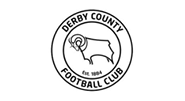The phrase ‘High protein’ is everywhere at the moment. Just walk around your local supermarket and there will be a large range of products with packaging that says ‘high in protein’ including; yoghurts, snack bars, cereal and even chocolate bars.
Protein for fat loss
The importance of protein for building muscle and recovery is now common knowledge. However, the benefits protein has for body composition don’t just end at muscle building, it is probably one of the most important nutrients to utilise when it comes to fat loss. Here’s 3 reasons why…
Preserves muscle mass
When on an energy restricted diet, fat loss is commonly accompanied by loss of muscle tissue. In order to maximise fat loss it is important that the breakdown of muscle tissue is prevented as much as possible. This is because muscle tissue burns calories, therefore preserving it will contribute to a greater energy expenditure and fat loss. The best way to do this is to increase protein intake. This stimulates muscle protein synthesis which is required for the repair and maintenance of muscle tissue. Increasing protein intake to as much as 1.5-3g per kg of bodyweight has been found to be beneficial for maintaining muscle tissue.
Protein is highly satiating
When on an energy restricted diet it’s common to feel hungry because the body is wanting more energy. These feelings of hunger can be detrimental to fat loss as they can lead to overeating. Protein can help prevent hunger as it is highly satiating, more so than both carbohydrate and fat. Getting a good serving of protein with every meal is therefore a great way to keep you fuller for longer.
High thermic effect of food
The Thermic Effect of Food (TEF) is the amount of energy expended in order to digest the food that we eat, and it accounts for around 10% of Total Daily Energy Expenditure (TDEE). The digestion of protein requires a greater amount of energy than both fat and carbohydrates. The body burns approximately 20-30% of the calories protein provides in order to process it. Therefore, a high protein intake will increase the amount of calories burned via TEF and increase overall energy expenditure.
A final note…
Protein contains calories with 4kcal per gram. This means that just eating more protein isn’t going to lead to fat loss, instead it will do the opposite as it will increase your calorie intake. A high protein intake still needs to be part of an energy restricted diet for it to have a benefit on fat loss.
Develop your knowledge with Diverse Trainers
For a further understanding of the effects of different food types on the body and how they affect exercise, why not consider a nutritional qualification? Diverse Trainers offers an Active IQ Award for Nutrition for Physical Activity. For more information, please contact our team on 01772 910 930 or leave us a message online.


















